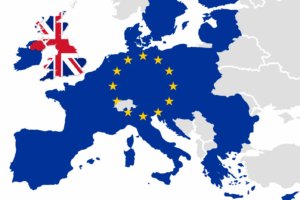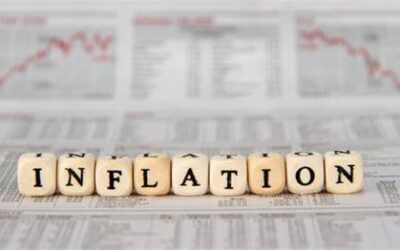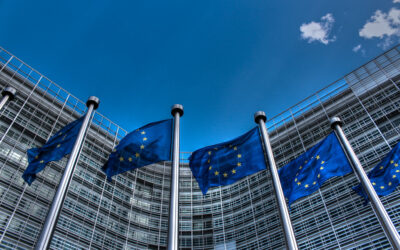
The European Union and the United Kingdom have taken a decisive step toward revitalizing their relationship, marking a significant post-Brexit shift in diplomacy, cooperation, and mutual strategic interest. At the landmark bilateral summit held in London on 19 May, European Commission President Ursula von der Leyen, European Council President António Costa, and UK Prime Minister Keir Starmer unveiled a comprehensive new partnership covering security, economic cooperation, climate, and youth exchange.
Forging a Strategic Security and Defence Partnership
Among the most notable outcomes of the summit was the establishment of an EU-UK Security and Defence Partnership. Set against the backdrop of increasing global instability, this agreement underscores a shared commitment to European and global security. The partnership enables the UK to participate in joint procurement actions under the EU’s Strategic and Flexible Equipment (SAFE) instrument—an initiative aimed at pooling defence investments, reducing costs, and ensuring operational interoperability among allies. With up to €150 billion in funding, SAFE will also allow UK-based companies to contribute to EU-wide procurement, pending a forthcoming agreement.
President von der Leyen lauded the deal for reinforcing Ukraine’s defence capabilities, both through joint procurement and direct investment in Ukraine’s defence industry.
Deepening Economic Integration and Sustainability Goals
The summit also yielded important economic agreements. The EU and UK reaffirmed reciprocal fishing rights until 2038, providing long-term certainty for coastal communities and the fishing industry. They also agreed to continue tariff-free trade in steel products, a key sector for both economies.
Efforts to reduce trade friction were highlighted by plans to negotiate a sanitary and phytosanitary (SPS) agreement, which would ease the movement of animal and plant products by minimizing regulatory checks.
On the climate front, the two sides committed to exploring the UK’s participation in the EU’s internal electricity market and linking their emissions trading systems. If successful, these steps could lead to reciprocal exemptions from carbon border adjustment mechanisms—strengthening climate action while boosting economic efficiency.
Investing in the Next Generation
Recognizing the importance of cultural and educational exchanges, leaders announced the UK’s reintegration into the Erasmus+ programme, along with the creation of a new youth mobility scheme. This initiative will allow young people from both sides to study, work, volunteer, or travel across the Channel under set conditions—helping to foster enduring ties between future generations.
Renewed Global Commitments
In a joint statement, the leaders reaffirmed their alignment on key geopolitical issues. They called for a full, unconditional ceasefire in Ukraine, denounced Russian aggression, and reiterated their unwavering support for Ukraine’s sovereignty and territorial integrity.
The leaders also addressed the crisis in the Middle East, advocating for a permanent ceasefire in Gaza, the release of hostages, and unimpeded humanitarian aid. A two-state solution remains central to their vision for a sustainable peace.
Concerns over Iran’s nuclear program and support for a peaceful political solution in Syria were also expressed, demonstrating the EU and UK’s shared approach to global security.
Strengthening Justice and Border Cooperation
The summit emphasized a shared interest in bolstering law enforcement cooperation. Plans include finalizing agreements between the UK’s National Crime Agency and Europol, expanding exchanges of biometric and criminal data, and improving joint efforts on irregular migration, including visa abuse and border security.
Institutionalizing the New Partnership
To maintain the momentum, leaders agreed to institutionalize their renewed relationship. Annual EU-UK summits will now be held at the highest level, complemented by semi-annual consultations between foreign and defence ministers. Additional high-level dialogues will cover strategic areas such as trade, justice, and migration.
They also pledged full adherence to existing agreements, including the Trade and Cooperation Agreement and the Windsor Framework, which governs arrangements concerning Northern Ireland.
Conclusion
The 2025 EU-UK summit represents a turning point in the post-Brexit era. Beyond pragmatic cooperation, it signals a broader political will to work collaboratively on shared challenges. With annual summits now set to become the norm, this renewed partnership is poised to evolve into a cornerstone of European and global stability.
References
European Commission . (2025, May 19). New chapter in EU-UK relations announced at Leaders’ Summit in London. Retrieved from European Commission : https://ec.europa.eu/commission/presscorner/detail/en/ac_25_1280
European Council . (2025, May 19). EU-UK summit, 19 May 2025. Retrieved from European Council : https://www.consilium.europa.eu/en/meetings/international-summit/2025/05/19/
Photo:
https://th.bing.com/th/id/R.55b8a3f66db2e98e8a16efadf4e4afce?rik=fi2ktkX2tQE6BA&pid=ImgRaw&r=0



